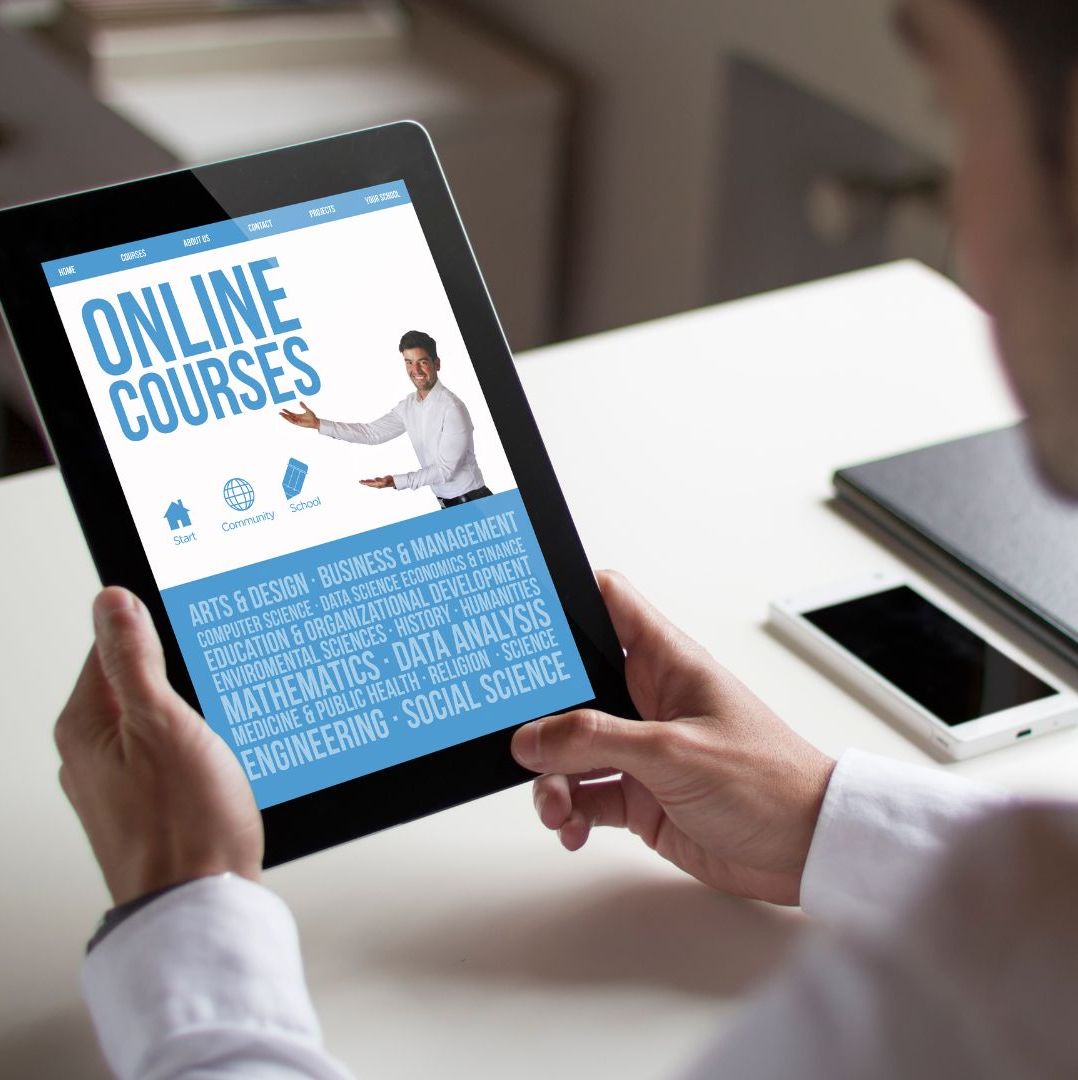Unlocking Success: A Comprehensive Guide to Interviewing Resources
These FAQs address the most common questions that people may have when it comes to planning, preparing for, conducting, and analysing interviews for various purposes. These FAQs are applicable to a wide range of industries and situations, such as academic research, radio broadcasting, podcast or webinar hosting, journalism, job interviews, and many others. The information provided also delves into specific aspects of the interview process, including planning for individual or group/focus group interviews, important considerations during interviews, effective questioning techniques, interviewing resources, building rapport with interviewees, different interview styles, and the steps to review and interpret the outcomes after the interview has taken place.
What Interviewing Resources Are Available For Improving My Skills And Techniques?
In today’s competitive job market and dynamic professional landscape, mastering the art of interviewing is essential for success. Whether you’re a seasoned professional, a budding journalist, a podcast host, or a human resource manager, continually refining your interviewing skills is crucial. In this article, we’ll explore the vast array of interviewing resources available to help you improve your interviewing techniques and excel in various industries.
Defining “Interviewing Resources”
Interviewing resources encompass a diverse range of tools, guides, and platforms designed to enhance your ability to conduct effective interviews. These interviewing resources may include tips, techniques, online courses, books, and technology-driven solutions aimed at refining your questioning, listening, and communication skills.
Online Courses for In-Depth Learning
Investing in online courses dedicated to interview skills is an excellent way to gain in-depth knowledge. Platforms like LinkedIn Learning and Coursera offer courses tailored to different industries, covering everything from body language interpretation to creating engaging conversations.
An investment in online courses dedicated to interview skills is a strategic move towards honing a comprehensive understanding of the art of interviewing. Platforms such as LinkedIn Learning and Coursera offer a diverse range of courses, ensuring accessibility for professionals across various industries. These courses delve deep into the nuances of effective interviewing, covering topics from body language interpretation to crafting engaging conversations that leave a lasting impression.

LinkedIn Learning, for instance, provides industry-specific courses facilitated by seasoned professionals who share real-world insights and practical tips. From mastering the art of active listening to understanding the intricacies of non-verbal communication, these courses offer a holistic approach to interview skills development. Coursera, on the other hand, often collaborates with top universities to deliver courses that blend academic rigor with practical application. Learners can explore modules on behavioural interview techniques, cultural sensitivity, and adapting to virtual interview dynamics, aligning with the evolving nature of professional interactions.
Additionally, these platforms often incorporate interactive elements, such as simulated interviews and case studies, allowing participants to apply theoretical knowledge in practical scenarios. This hands-on approach not only reinforces learning but also prepares individuals for the unpredictable nature of real interviews. As a result, investing time and resources in these courses becomes an investment in long-term professional growth and success.
Podcasts as a Learning Platform
Podcasts present a unique opportunity to learn from seasoned interviewers. Tune into shows like “The Tim Ferriss Show” or “How I Built This” to observe interview techniques, question formulation, and rapport-building skills in action.
Podcasts stand as invaluable interviewing resources for those looking to enhance their interview skills by immersing themselves in the experiences of seasoned interviewers. Shows like “The Tim Ferriss Show” and “How I Built This” offer a front-row seat to masterful interview techniques, question formulation, and the delicate art of building rapport with interviewees.
“The Tim Ferriss Show,” hosted by best-selling author Tim Ferriss, is renowned for its in-depth interviews with world-class performers across various industries. Ferriss dives into the interview process itself, often discussing specific strategies employed by his guests to extract valuable insights. Listening to this podcast provides a unique opportunity to understand the thinking process behind successful interviews, helping individuals develop a more intuitive and effective approach.
Similarly, “How I Built This,” hosted by Guy Raz, focuses on the stories of entrepreneurs and innovators. Raz’s interviewing style encourages guests to share the highs and lows of their journeys, offering a rich source of inspiration and practical lessons for aspiring interviewers. By dissecting the structure of these interviews, individuals can gain insights into framing compelling questions, managing conversational flow, and extracting compelling narratives from their subjects.
Moreover, podcasts provide a convenient and flexible learning experience. Professionals can absorb valuable lessons during their commute, workout, or downtime, making it an accessible option for continuous learning. Incorporating insights from these podcasts into one’s own interviewing style can significantly elevate the quality and impact of conversations in various professional settings.
Specialised Books for Deep Insight
Explore books written by accomplished interviewers such as “Talk Like TED” by Carmine Gallo or “The Art of Asking” by Amanda Palmer. These interviewing resources delve into the psychology behind effective interviews and provide actionable insights applicable to various contexts.
Exploring books authored by accomplished interviewers unveils a wealth of knowledge that goes beyond the surface of basic interview techniques. “Talk Like TED” by Carmine Gallo is a captivating exploration into the art of public speaking, and within its pages, readers find valuable insights applicable to interviews. Gallo dissects the TED Talk format, revealing the psychological triggers that captivate audiences. By understanding these principles, interviewers can enhance their ability to communicate effectively, ensuring their messages resonate with clarity and impact.
In a different vein, “The Art of Asking” by Amanda Palmer offers a unique perspective on the interview process. Palmer, a musician and TED speaker, shares her experiences in making bold requests and navigating conversations with authenticity. Her book delves into the psychology of asking questions that elicit meaningful responses, a skill invaluable for interviewers aiming to connect on a deeper level with their subjects. Both books not only provide practical tips but also instil a mindset that fosters genuine engagement, crucial for successful interviews across diverse professional landscapes.
Moreover, these books serve as enduring interviewing resources, allowing individuals to revisit and reinforce their learning over time. The wisdom embedded in the pages becomes a foundation upon which interviewers can build and refine their skills throughout their careers.
AI-Powered Interview Simulation Tools
Platforms like InterviewBuddy and HireVue leverage artificial intelligence to simulate real interview scenarios. These tools offer valuable feedback on your performance, helping you identify areas for improvement.
The advent of artificial intelligence has revolutionised the way professionals can prepare for interviews through platforms like InterviewBuddy and HireVue. These interviewing resources go beyond theoretical knowledge, immersing individuals in simulated interview scenarios that closely mimic real-life situations. The use of AI ensures dynamic interactions, adapting to responses and providing a realistic experience that transcends traditional mock interviews.
InterviewBuddy, for example, allows users to practice in a diverse range of settings, from job interviews to panel discussions. The AI algorithms assess not only verbal responses but also non-verbal cues, offering a holistic evaluation of performance. Immediate feedback highlights strengths and areas for improvement, creating a personalised learning experience. Similarly, HireVue utilises advanced technology to analyse verbal and non-verbal communication, providing detailed insights that aid in refining interview skills.
One of the significant advantages of AI-powered simulations is the ability to practice in a pressure-free environment. Users can experiment with different approaches, refine their responses, and build confidence without the stakes associated with real interviews. As the technology evolves, these tools continue to provide increasingly sophisticated and tailored experiences, ensuring that individuals are well-prepared for the unpredictable nature of professional interactions. Incorporating AI simulations into interview preparation becomes a proactive step towards mastering the intricacies of effective communication.
Networking Events and Workshops
Attending industry-specific networking events and workshops provides opportunities to interact with experts and peers. Engage in mock interviews, seek feedback, and exchange tips to refine your skills.
Participating in industry-specific networking events and workshops is a proactive approach to not only expanding professional connections but also enhancing one’s interviewing skills. These events serve as fertile grounds for engagement with experts and peers who bring diverse perspectives and experiences to the table. Engaging in mock interviews within these settings provides a unique opportunity to receive real-time feedback from seasoned professionals, helping individuals pinpoint areas for improvement and refine their techniques.

Moreover, networking events often feature workshops that focus explicitly on interview skills development. Facilitators, who are often industry insiders or HR specialists, share insights into the latest trends, best practices, and effective strategies in interviewing. Workshops may include interactive exercises, role-playing scenarios, and case studies, creating a dynamic learning environment. These hands-on experiences not only solidify theoretical knowledge but also allow participants to witness and learn from different interviewing styles, fostering adaptability in diverse professional settings.
Attending these events goes beyond the immediate goal of expanding one’s professional network; it becomes a strategic investment in continuous skill enhancement. The relationships built in these settings can lead to mentorship opportunities, creating a supportive network that contributes to ongoing career development.
Utilising Professional Interview Transcription Services
Platforms like Way With Words offer professional interview transcription services. Having your interviews transcribed professionally can serve as a valuable learning tool, allowing you to review and analyse your performance with precision.
In the digital age, leveraging professional interview transcription services, such as those offered by Way With Words, emerges as a game-changer in the pursuit of refining interview skills. Beyond the obvious benefits of accurate transcriptions, these services serve as an invaluable learning tool. Reviewing transcripts of interviews allows individuals to meticulously analyse their performance, identifying linguistic patterns, strengths, and areas that require improvement. The precision offered by professional transcription ensures that every nuance, from tone to phrasing, is captured, providing a comprehensive self-assessment resource.
Furthermore, transcription services contribute to the creation of a knowledge repository. By having interviews transcribed, individuals build a database of insights and valuable information extracted during conversations. These interviewing resources become a reference point for future interviews, enabling interviewers to draw on past experiences and tailor their approach based on historical successes.
Platforms like Way With Words, known for their accuracy and commitment to confidentiality, add an additional layer of professionalism to the process. As interviews are often critical components of research, journalism, or content creation, having accurate transcriptions becomes not only a learning tool but also a means of preserving and archiving valuable information. Incorporating professional transcription into the interview process transforms it into a strategic tool for both personal development and knowledge management.
Industry-Specific Interviewing Forums
Explore online forums dedicated to your industry, such as Reddit communities or specialised forums like Quora. Engaging in discussions with professionals in your field can provide valuable insights and advice.
Navigating the digital landscape, industry-specific interviewing forums have become indispensable hubs for professionals seeking to enhance their skills and gather interviewing resources. Platforms like Reddit communities or specialised forums like Quora create virtual spaces where professionals from the same industry converge to discuss challenges, share insights, and offer advice. Engaging actively in these forums provides a unique opportunity to tap into the collective wisdom of industry peers, gaining diverse perspectives on the art of interviewing.
In these forums, participants can explore a wide array of topics related to interviewing, ranging from specific techniques and best practices to nuanced discussions on industry-specific interview formats. For example, a journalist may find valuable insights into conducting effective investigative interviews, while a technology professional might gain tips on evaluating technical skills during software development interviews. The dynamic nature of these forums ensures that the advice is current and relevant, reflecting the ever-evolving landscape of professional interviews.
Beyond the wealth of information, these forums foster a sense of community. Professionals can form connections, seek mentorship, and even participate in mock interviews with peers. The collective knowledge-sharing not only elevates individual skills but also contributes to the overall improvement of interviewing standards within the industry. It’s a symbiotic relationship where everyone benefits from the shared wisdom and experiences of their peers.
Leveraging Social Media for Insights
Platforms like LinkedIn and Twitter are treasure troves of interviewing resources and tips. Follow industry experts, participate in relevant discussions, and stay updated on the latest trends in interviewing.
Social media platforms such as LinkedIn and Twitter have evolved beyond personal networking tools into dynamic repositories of professional insights, making them invaluable interviewing resources for individuals looking to refine their interviewing skills. LinkedIn, with its professional focus, serves as a treasure trove of interviewing resources, tips, and thought leadership articles. Following industry experts and participating in relevant discussions on LinkedIn not only keeps individuals abreast of the latest trends but also provides a platform to seek advice from seasoned professionals.

Twitter, known for its real-time information flow, offers a more conversational space for professionals to share quick tips, engage in live discussions through hashtags, and stay updated on emerging practices in the interviewing landscape. Creating a curated feed by following industry leaders, HR professionals, and relevant organisations ensures a steady stream of valuable content related to interviewing techniques and trends.
Additionally, both platforms allow professionals to showcase their expertise and share their own insights. By contributing to discussions, posting relevant content, and engaging with others in the field, individuals position themselves as active participants in the ongoing conversation about effective interviewing. This not only enhances personal branding but also opens avenues for networking and mentorship opportunities.
In the age of digital connectivity, social media platforms serve as dynamic spaces for continuous learning. Professionals can tailor their social media experiences to align with their specific industry and career goals, transforming these platforms into personalised, on-the-go learning interviewing resources.
Peer-to-Peer Feedback Sessions
Organise peer-to-peer feedback sessions with colleagues or industry peers. Constructive feedback from others in your field can offer unique perspectives and highlight blind spots in your interviewing approach.
Creating a culture of continuous improvement in your interviewing skills involves more than self-reflection. Peer-to-peer feedback sessions stand out as a powerful method to gain constructive insights from those within your industry. Organising these sessions with colleagues or industry peers fosters an environment of mutual support and professional growth. The advantage lies in the diverse perspectives brought to the table – each individual may have a unique approach to interviews based on their experiences, and tapping into this diversity can uncover blind spots you might have overlooked.
During these feedback sessions, it’s crucial to establish a framework for constructive criticism. Encourage peers to provide specific examples, highlighting moments that stood out positively and areas that could be refined. This targeted feedback goes beyond general observations and helps you pinpoint specific aspects of your interviewing technique that may need improvement. Additionally, incorporating role-playing scenarios within these sessions can simulate real interview situations, allowing for practical application of the feedback received.
Moreover, peer-to-peer feedback sessions create a supportive network where professionals can share their challenges and successes openly. Through this collaborative approach, individuals not only refine their interviewing skills but also cultivate a sense of camaraderie within their professional circles. This practice can be particularly beneficial for junior professionals seeking guidance from more experienced colleagues and vice versa, fostering a culture of continuous learning across all career stages.
Continuous Learning through Webinars
Participate in webinars hosted by interviewing experts. Platforms like Zoom and GoToWebinar often feature industry leaders sharing their experiences and providing valuable insights.
Webinars have emerged as a cornerstone for professionals aiming to stay abreast of industry trends, and when it comes to interviewing skills, they offer a wealth of insights. Platforms like Zoom and GoToWebinar host webinars featuring industry leaders, HR experts, and seasoned professionals sharing their experiences and providing valuable interviewing resources. Participating in these webinars not only allows individuals to learn from the best but also facilitates direct interaction with experts through Q&A sessions, providing a personalised learning experience.
The beauty of webinars lies in their flexibility and accessibility. Professionals can join these virtual sessions from the comfort of their homes or offices, eliminating geographical constraints. This accessibility is particularly beneficial for individuals with busy schedules who might find it challenging to attend in-person events. The recorded nature of many webinars also means that participants can revisit key insights and advice at their convenience, reinforcing their learning over time.
Moreover, the variety of topics covered in webinars caters to professionals across different industries and career levels. From mastering the art of remote interviewing to understanding the latest trends in competency-based interviews, these sessions offer a comprehensive overview of the evolving landscape. Hosting organisations often bring in diverse speakers, providing participants with a well-rounded understanding of various interviewing methodologies and strategies.
Incorporating webinars into your continuous learning plan ensures that you receive up-to-date information and insights from thought leaders in the field. It’s a dynamic and efficient way to stay informed, refine your interviewing skills, and adapt to the ever-changing demands of the professional world.
Key Tips On Interviewing Resources
- Diversify Your Learning: Combine various resources to gain a well-rounded understanding of interviewing techniques.
- Consistent Practice: Regularly apply what you learn in real-world scenarios to solidify your skills.
In conclusion, enhancing your interviewing skills is an ongoing journey that requires dedication and a diverse approach. From online courses and podcasts to professional transcription services, the plethora of interviewing resources available ensures that there’s something for everyone. Remember, the key to success lies in continuous learning, practical application, and a willingness to adapt to evolving interview dynamics.
Useful Interviewing Resources
- LinkedIn Learning: Offers a variety of interview skill courses tailored to different industries.
- Coursera: Provides comprehensive online courses on interview techniques and communication skills.
- Way With Words: A reliable platform for professional interview transcription services, ensuring accuracy and efficiency.
